Today’s post is about the expression あまりの~に…, which means because of excessive ~, …. Read example sentences and get the feel of its usage.
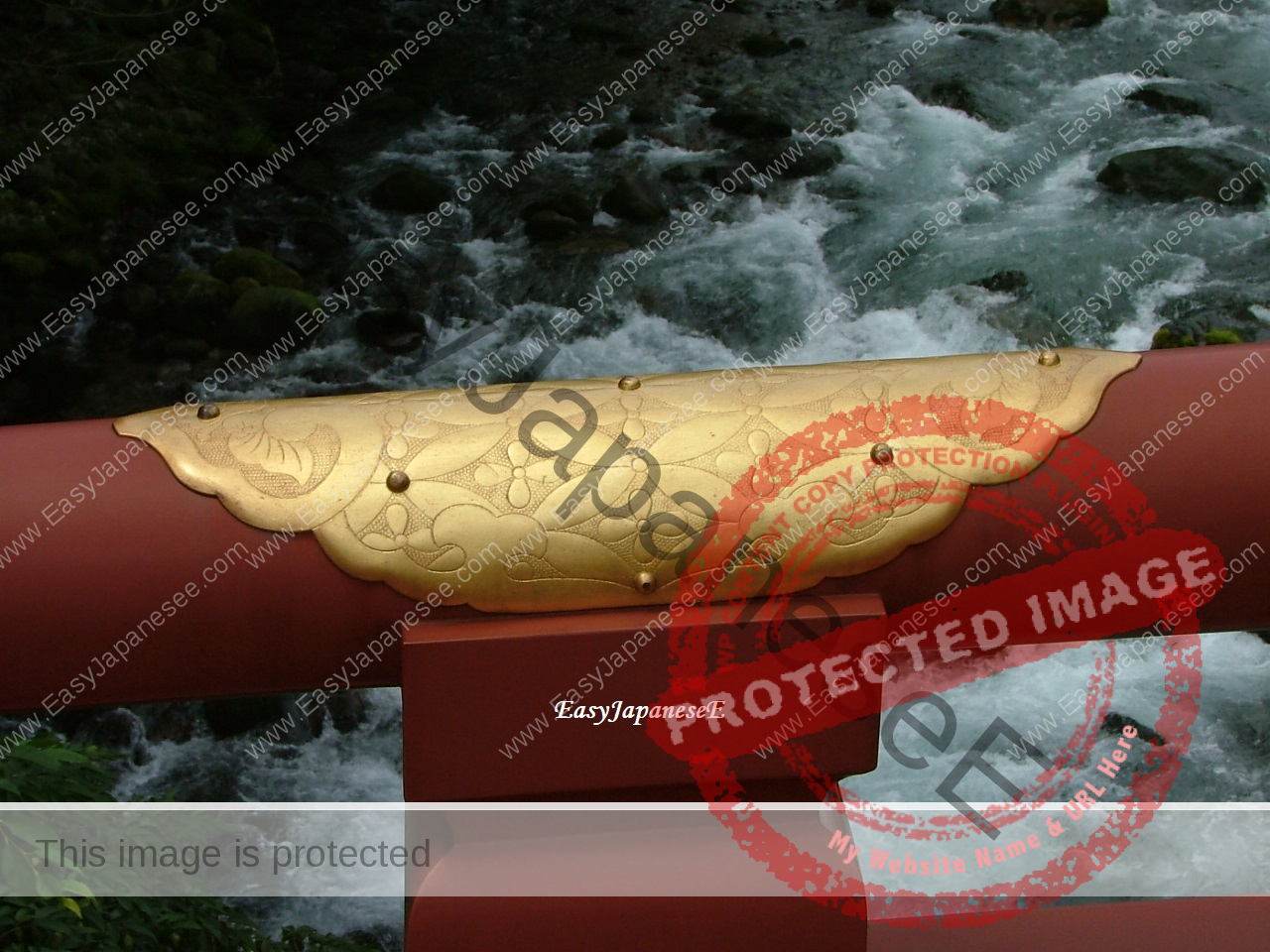

Today’s post is about the expression あまりの~に…, which means because of excessive ~, …. Read example sentences and get the feel of its usage.

Today’s Grammar Point: あまりに(も)~ Connection あまりに(も) [いadj]あまりに(も) [なadj]あまりに(も) [verb] Possible English Translation so ~ that ・・・too ~ to ・・・ (when…
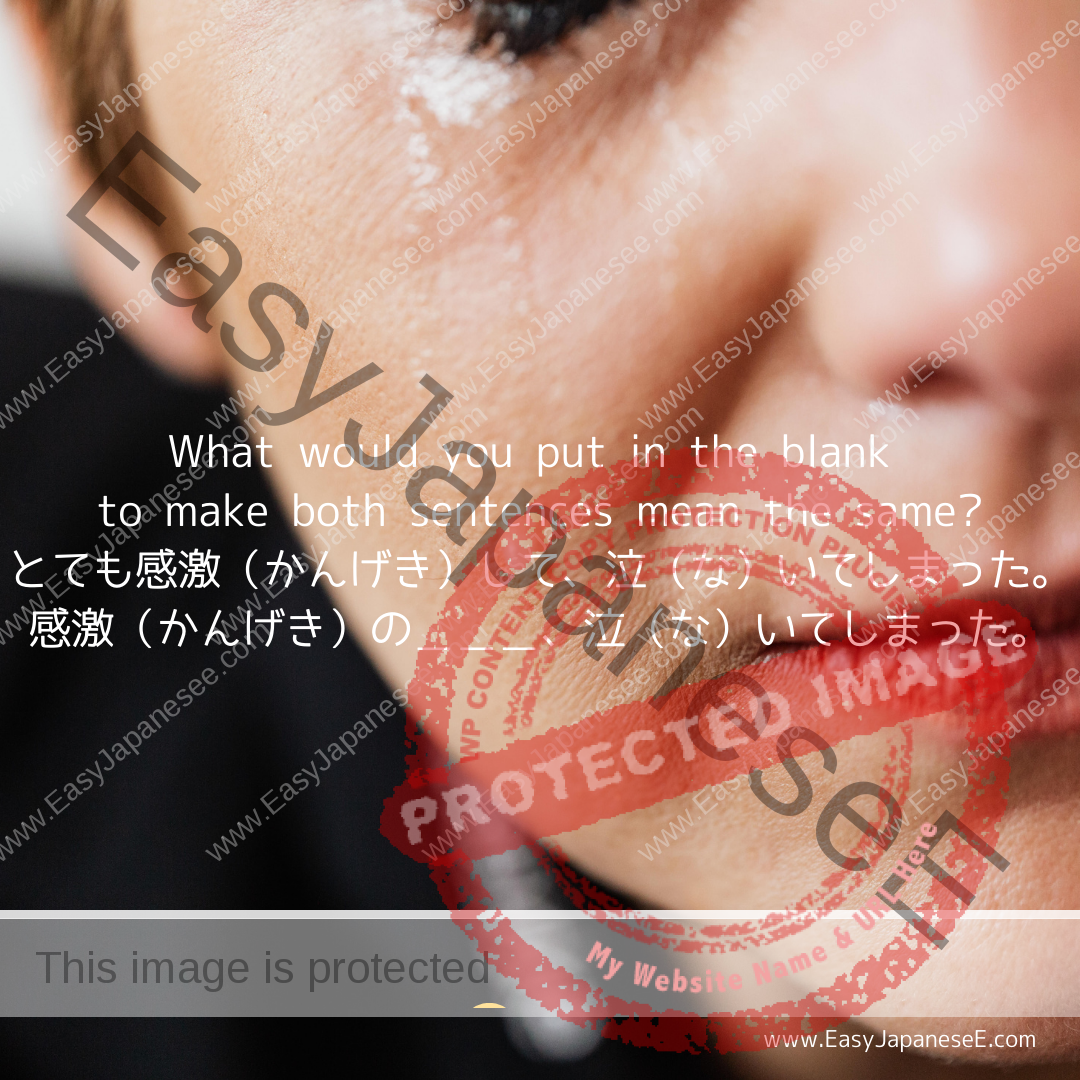
Today’s Question What would you put in the blank to make both sentences mean the same?とても感激かんげきして、泣ないてしまった。感激かんげきの___、泣ないてしまった。 Today’s Grammar Point: ~あまり、・・・…
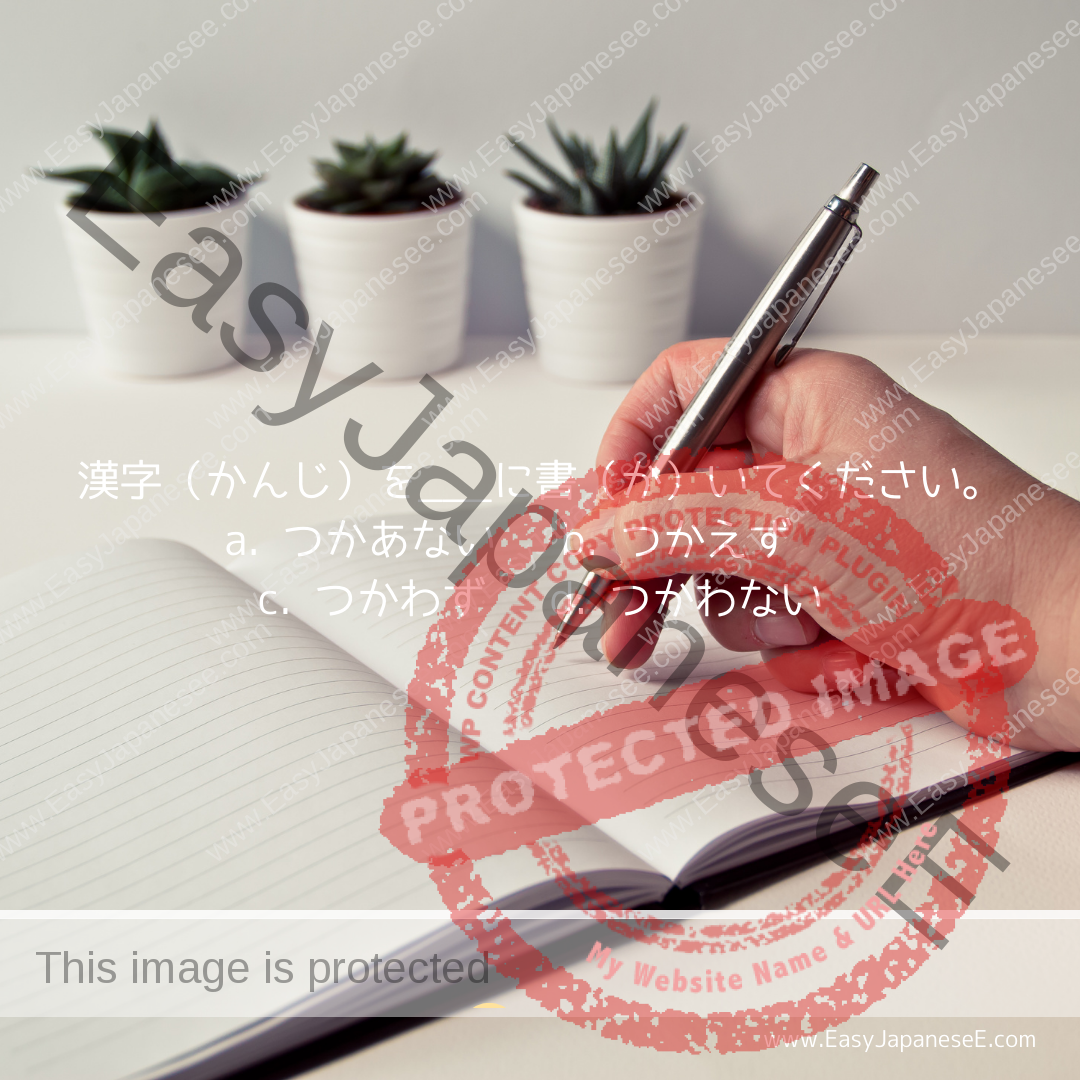
Today’s Question 漢字かんじを____に書かいてください。a. つかあない b. つかえず c. つかわず d. つかわない Today’s Grammar Point: ~ず(に) Connection [~ない form stem] + ずにIn…

Today’s Question You saw a menu item きょうのおばんざい. You’ve never seen/heard the word おばんざい, so you want to know what…
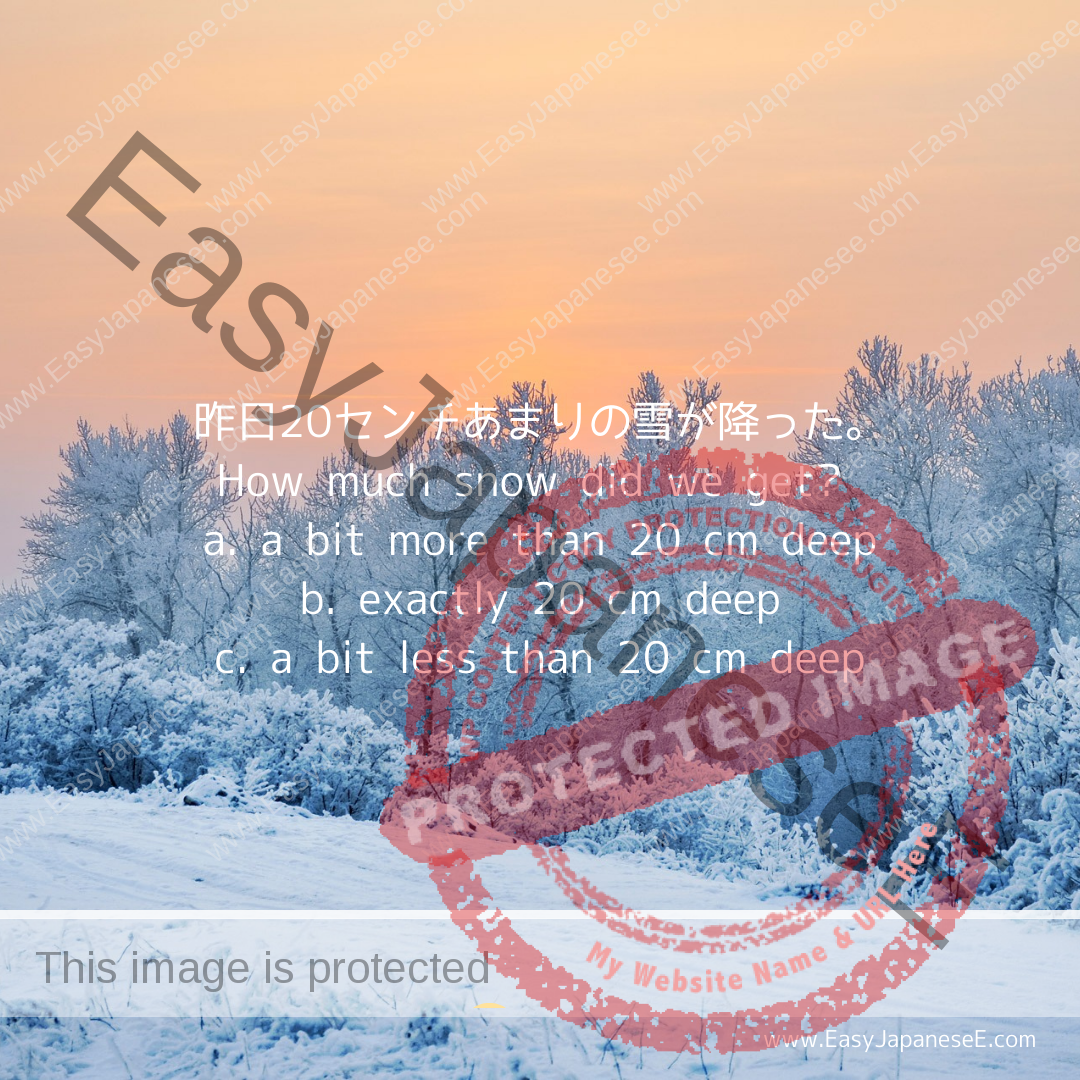
Today’s Question 昨日20センチあまりの雪が降った。How much snow did we get?a. a bit more than 20 cm deepb. exactly 20 cm deepc. a…

How to Convert Polite form into Plain form 1-dan verb 5-dan verb いadjective なadjective/ noun non past affirmative (dictionary form)Click…

Connection いadjective: change the last い into くなadjective: add に Explanation An adjective describes a noun whether it’s placed before…

This post explains how how to use ~の with Japanese adjectives in the same way as the English “one” (as in a “white one” or “large ones”) in Japanese.

How to make てform Connection ~ [てform] … Meaning ~ and ・・・In case of 2 verbs connected, the actions happened in…
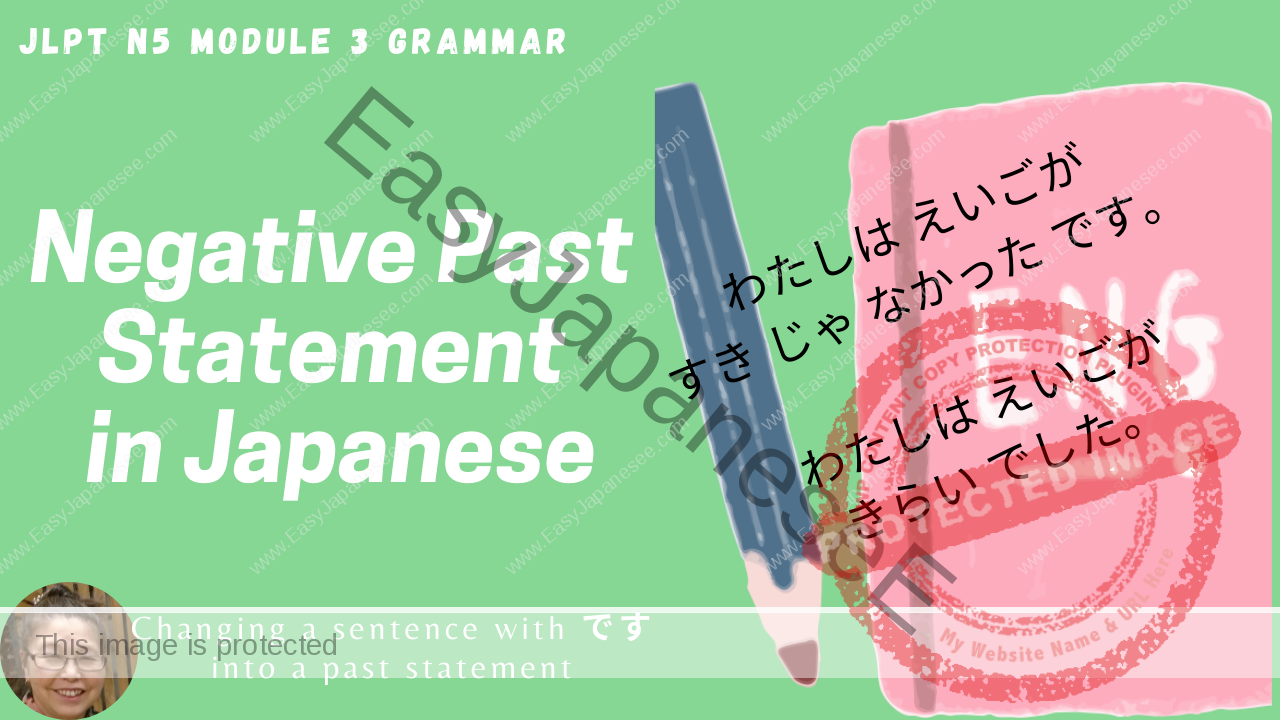
Connection [noun] は [いadjective stem] くなかったです。(いadjective stem means an いadjective without the last い)[noun] は [noun]/[なadjective] じゃなかったです。[noun] は [noun]/[なadjective] ではなかったです。[noun]…

Connection [noun] は [いadjective stem] かったです。(いadjective stem means an いadjective without the last い)[noun] は [なadjective] でした。[noun] は [noun] でした。…

This post explains how to change polite form sentences “~は・・・かったです” or “~は・・・でした” (in English ~ was・・・) into the plain form in Japanese.

This post explains how to translate “~wasn’t/weren’t・・・” into the plain form Japanese. There are a few different correct patterns.

This post explains how to translate “~ am/are/is NOT・・・” into the plain form Japanese.

This post explains how to translate “~ am/are/is・・・” in the plain form Japanese. You need to be careful we don’t use だ after an いadjective.
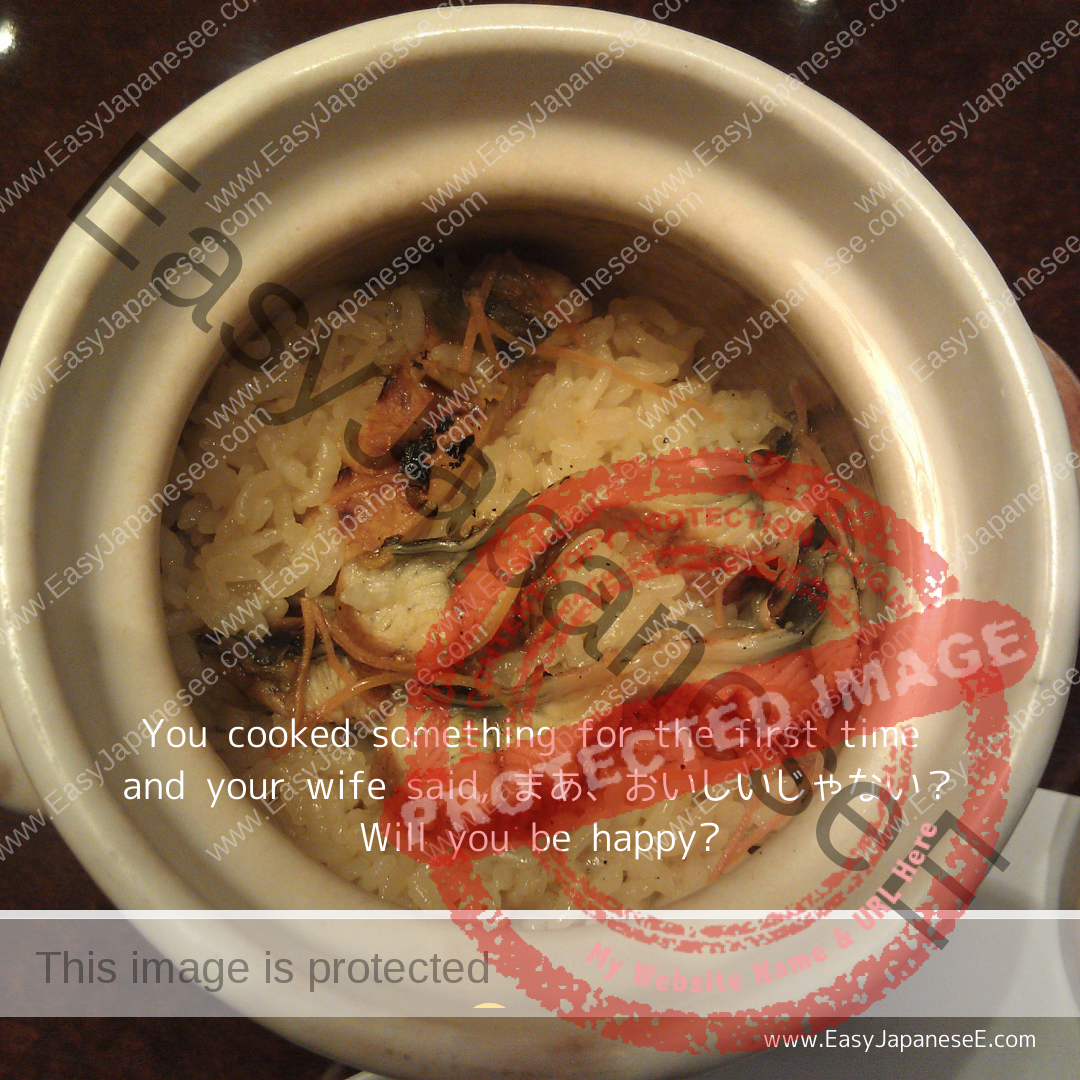
Today’s Question You cooked something for the first time and your wife said, まあ、おいしいじゃない?Will you be happy? Today’s Grammar Point:…
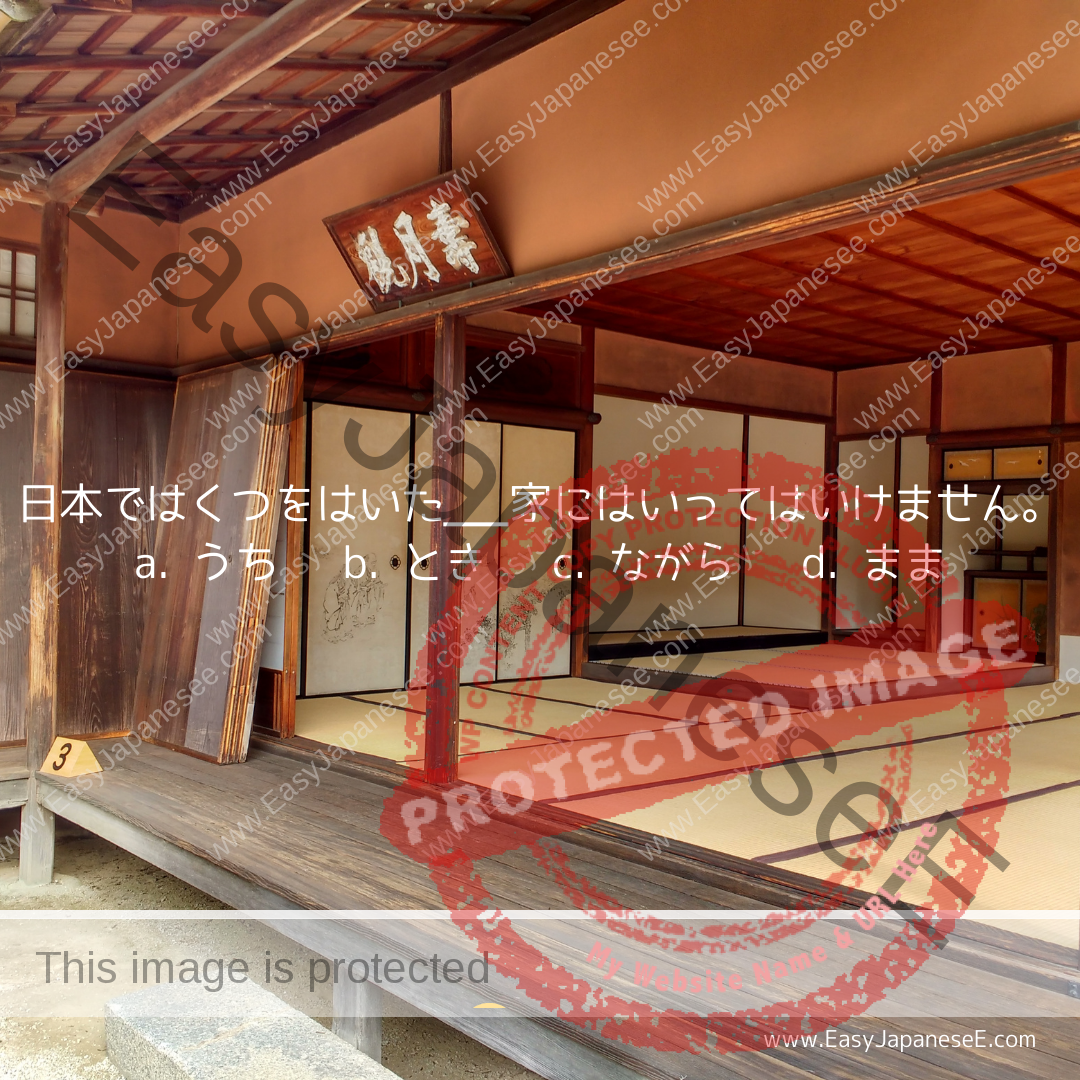
Today’s Question 日本にほんではくつをはいた 家いえにはいってはいけません。a. うち b. とき c. ながら d. まま Today’s Grammar Point: ~まま… Connection [past plain verb] + まま…[non-past…
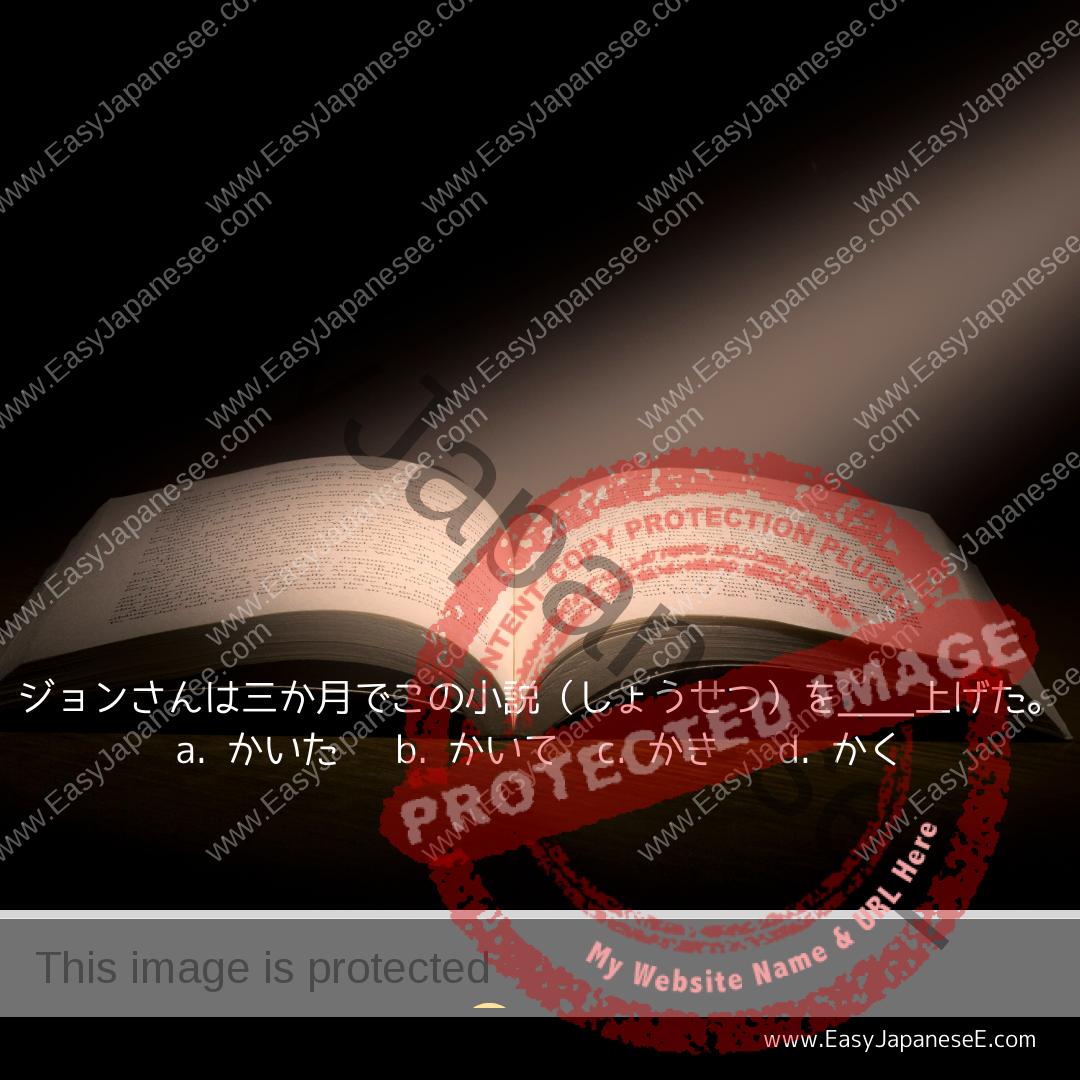
Today’s Question ジョンさんは三か月でこの小説(しょうせつ)を__上あげた。a. かいた b. かいて c. かき d. かく Today’s Grammar Point: ~上あげる/~上あがる Connection [verb stem] + 上げる[verb stem]…
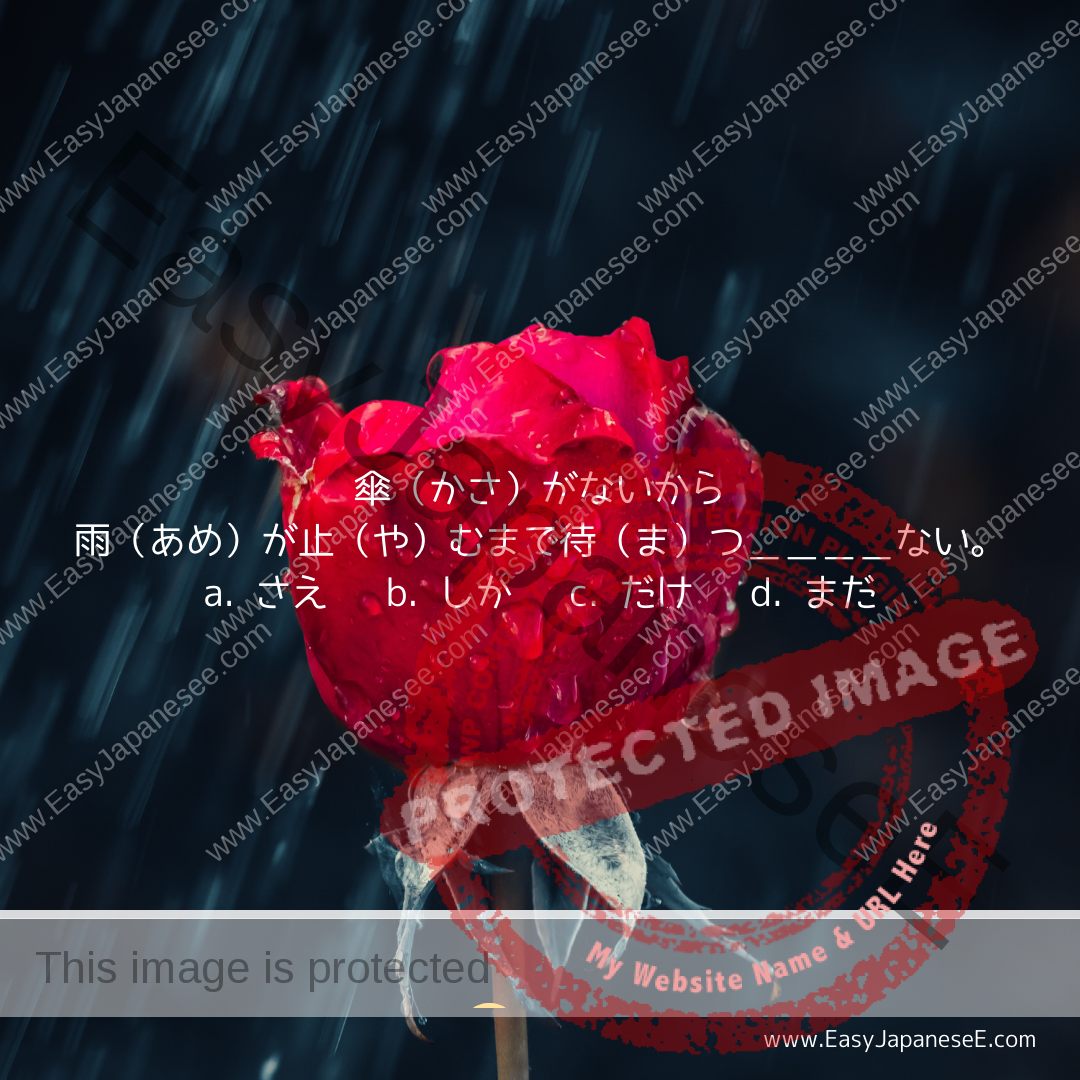
Today’s Question 傘(かさ)がないから雨(あめ)が止(や)むまで待(ま)つ____ない。a. さえ b. しか c. だけ d. まだ Today’s Grammar Point: ~しかない/~ほかない Connection [dictionary form verb] + しかない…
